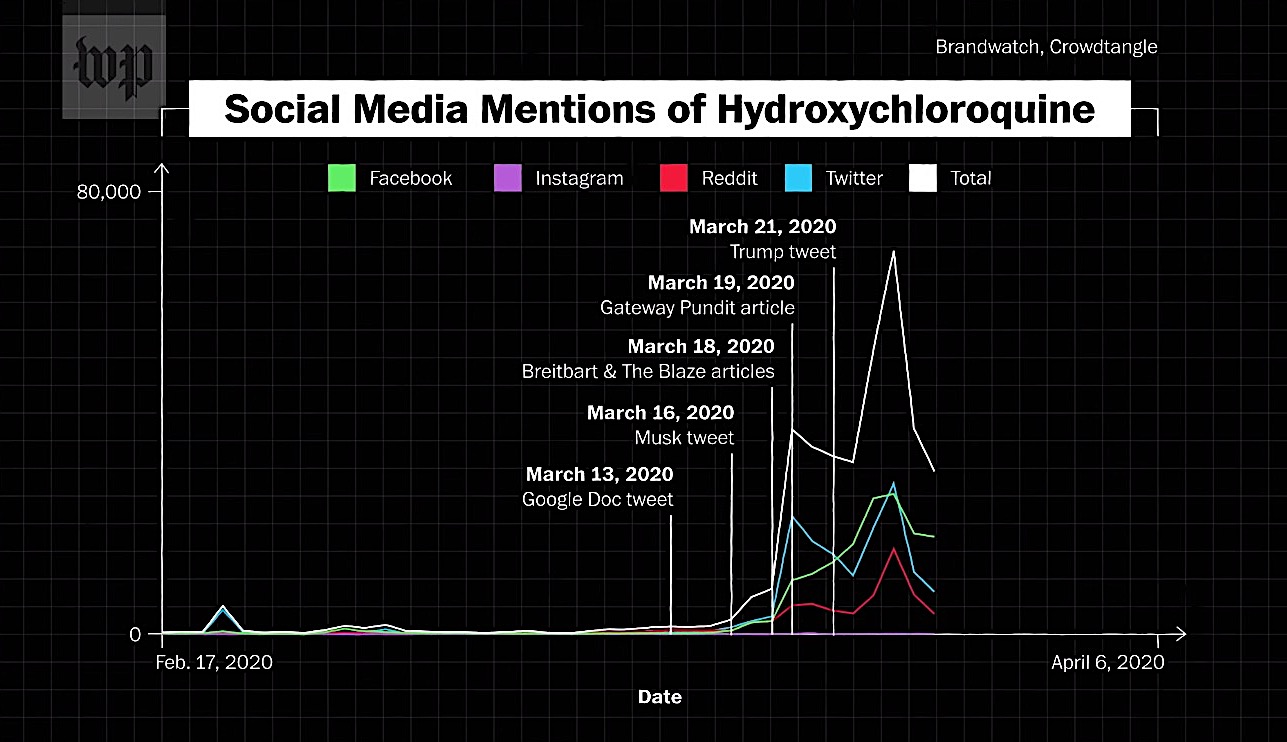How hydroxychloroquine went from a tweeted Google Doc to Trump's favorite COVID-19 drug


A free daily email with the biggest news stories of the day – and the best features from TheWeek.com
You are now subscribed
Your newsletter sign-up was successful
Everyone wants a cure for COVID-19, the new coronavirus spreading around the world and causing economic and social upheaval. An effective treatment would also go a long way toward helping the world amble toward normalcy while researchers develop and test a vaccine. President Trump has put great store in hydroxychloroquine, a malaria drug used now to treat lupus and rheumatoid arthritis, but his federal health and medical advisers are skeptical.
The idea of the drug as a potential COVID-19 treatment started with Chinese reports of clinical trials, a tweet from Nigeria, and Facebook posts from France, Washington Post fact-checker Elyse Samuels recounts, but it started taking off in the U.S. when a block-chain investor tweeted a Google Doc he co-wrote exploring chloroquine's coronavirus-slaying properties — and Elon Musk retweeted it three days later, on March 16. Conservative media picked up the claims, then Fox News, and finally Trump and his close allies.
"As hype around the drugs continued, experts were wary about a lack of scientific evidence," with Dr. Anthony Fauci repeatedly noting there was nothing but "anecdotal reports" backing up the drug's claims, Samuels noted, explaining: "Anecdotal evidence is like a Yelp review, but for science." Trump argues that coronavirus patients have nothing to lose, but "there have been and will continue to be negative consequences of overpromising the drug's potential," she added. "Rumors on the internet are the least reliable source of information, and politicians are not qualified to give scientific advice, despite even the best of intentions." Watch Samuels' brief history of a would-be miracle cure, and her conversations with experts on why it probably isn't, below. Peter Weber
The Week
Escape your echo chamber. Get the facts behind the news, plus analysis from multiple perspectives.

Sign up for The Week's Free Newsletters
From our morning news briefing to a weekly Good News Newsletter, get the best of The Week delivered directly to your inbox.
From our morning news briefing to a weekly Good News Newsletter, get the best of The Week delivered directly to your inbox.
A free daily email with the biggest news stories of the day – and the best features from TheWeek.com
Peter has worked as a news and culture writer and editor at The Week since the site's launch in 2008. He covers politics, world affairs, religion and cultural currents. His journalism career began as a copy editor at a financial newswire and has included editorial positions at The New York Times Magazine, Facts on File, and Oregon State University.
-
 The problem with diagnosing profound autism
The problem with diagnosing profound autismThe Explainer Experts are reconsidering the idea of autism as a spectrum, which could impact diagnoses and policy making for the condition
-
 What to know before filing your own taxes for the first time
What to know before filing your own taxes for the first timethe explainer Tackle this financial milestone with confidence
-
 The biggest box office flops of the 21st century
The biggest box office flops of the 21st centuryin depth Unnecessary remakes and turgid, expensive CGI-fests highlight this list of these most notorious box-office losers
-
 Trump HHS slashes advised child vaccinations
Trump HHS slashes advised child vaccinationsSpeed Read In a widely condemned move, the CDC will now recommend that children get vaccinated against 11 communicable diseases, not 17
-
 FDA OKs generic abortion pill, riling the right
FDA OKs generic abortion pill, riling the rightSpeed Read The drug in question is a generic version of mifepristone, used to carry out two-thirds of US abortions
-
 RFK Jr. vaccine panel advises restricting MMRV shot
RFK Jr. vaccine panel advises restricting MMRV shotSpeed Read The committee voted to restrict access to a childhood vaccine against chickenpox
-
 Texas declares end to measles outbreak
Texas declares end to measles outbreakSpeed Read The vaccine-preventable disease is still spreading in neighboring states, Mexico and Canada
-
 RFK Jr. shuts down mRNA vaccine funding at agency
RFK Jr. shuts down mRNA vaccine funding at agencySpeed Read The decision canceled or modified 22 projects, primarily for work on vaccines and therapeutics for respiratory viruses
-
 Measles cases surge to 33-year high
Measles cases surge to 33-year highSpeed Read The infection was declared eliminated from the US in 2000 but has seen a resurgence amid vaccine hesitancy
-
 Kennedy's vaccine panel signals skepticism, change
Kennedy's vaccine panel signals skepticism, changeSpeed Read RFK Jr.'s new vaccine advisory board intends to make changes to the decades-old US immunization system
-
 Kennedy ousts entire CDC vaccine advisory panel
Kennedy ousts entire CDC vaccine advisory panelspeed read Health Secretary RFK Jr. is a longtime anti-vaccine activist who has criticized the panel of experts
